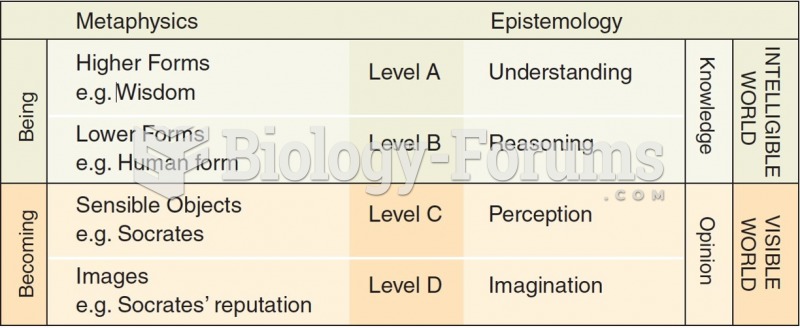|
|
|
Only 12 hours after an egg cell is fertilized by a sperm cell, the egg cell starts to divide. As it continues to divide, it moves along the fallopian tube toward the uterus at about 1 inch per day.
There are actually 60 minerals, 16 vitamins, 12 essential amino acids, and three essential fatty acids that your body needs every day.
The calories found in one piece of cherry cheesecake could light a 60-watt light bulb for 1.5 hours.
Addicts to opiates often avoid treatment because they are afraid of withdrawal. Though unpleasant, with proper management, withdrawal is rarely fatal and passes relatively quickly.
Though newer “smart” infusion pumps are increasingly becoming more sophisticated, they cannot prevent all programming and administration errors. Health care professionals that use smart infusion pumps must still practice the rights of medication administration and have other professionals double-check all high-risk infusions.
 A page from Kelileh o Demneh dated 1429, from Herat, a Persian translation of the ancient Indian Pan
A page from Kelileh o Demneh dated 1429, from Herat, a Persian translation of the ancient Indian Pan
 In this cartoon, Boss Tweed welcomes cholera—a skeletal figure of death carrying a handbag from “Asi
In this cartoon, Boss Tweed welcomes cholera—a skeletal figure of death carrying a handbag from “Asi





